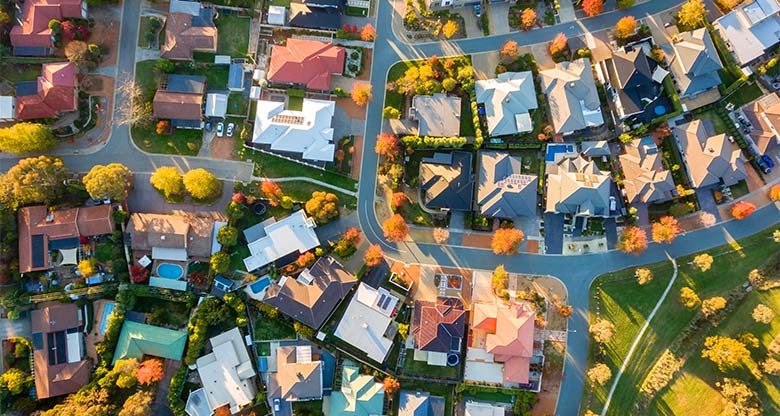Understanding the Empty Property Tax in Australia
The Basics of Empty Property Tax
In recent years, Australia has seen a surge in housing demand and a shortage of affordable homes. As a response to this issue, several states within the country have implemented the empty property tax. This tax aims to incentivize property owners to put their vacant properties to productive use and alleviate the housing crisis. Let’s delve into the details of what the empty property tax entails and how it affects property owners and the broader real estate market.
What is Empty Property Tax?
Empty property tax, also known as vacant property tax, is a levy imposed on properties that are left unoccupied for extended periods. The primary objective of this tax is to encourage property owners to either sell, rent, or otherwise make use of their vacant properties, thereby increasing the overall housing supply and reducing the strain on the housing market. The concept behind this tax is to deter property speculation and ensure that available housing resources are utilized effectively.

What is the empty property tax in Australia?
State Implementation and Variations
While the overarching idea of empty property tax is consistent across Australia, the specific rules and regulations can vary from one state to another. Various states have introduced their own versions of the tax, tailored to their unique housing challenges and market conditions.
Victoria
In Victoria, the vacant residential property tax was introduced as a response to the growing number of unoccupied homes in the state. This tax applies to properties located in designated areas and imposes an annual fee on properties that are left vacant for a specified amount of time. The goal is to encourage property owners to either sell, rent, or occupy their properties and contribute to the housing supply.
New South Wales (NSW)
In NSW, the vacant land tax targets properties that are unused and unimproved. The tax applies to land that is not being used for any productive purpose, such as development or agriculture. This approach aims to prevent land banking, where investors hold onto vacant land without contributing to the community’s housing needs.
South Australia
South Australia has also taken steps to address the issue of vacant properties. The state has introduced a land tax surcharge on properties that are considered “absentee owned.” This means that properties owned by individuals who do not reside in Australia are subject to an additional tax, encouraging foreign property owners to either sell or rent out their properties.

Impact on Property Owners
Property owners subject to the empty property tax often find themselves facing difficult decisions. The tax can significantly increase the cost of owning a vacant property, motivating owners to explore alternatives that align with the tax’s objectives. These alternatives include renting out the property, selling it, or using it for other permissible purposes.
Benefits for the Housing Market
The implementation of empty property tax comes with several potential benefits for the housing market and the broader community:
Increased Housing Supply
One of the main advantages of the empty property tax is the potential to increase the housing supply. By encouraging property owners to put their vacant properties on the market, the tax can contribute to a more balanced supply-demand equation, leading to more accessible and affordable housing options.
Reduced Speculation
Empty properties often attract speculative investors who are more interested in holding onto real estate for potential future gains rather than contributing to the housing market’s immediate needs. The empty property tax disincentivizes this behavior by making it less financially appealing to leave properties vacant for extended periods. Find out more here.
Improved Community Engagement
When properties are occupied, neighborhoods tend to thrive with increased community engagement. Occupied homes lead to more vibrant local economies, better upkeep of properties, and a stronger sense of belonging among residents.
Challenges and Considerations
While the empty property tax presents promising solutions, it’s essential to acknowledge the challenges and considerations associated with its implementation:
Enforcement and Compliance
Ensuring compliance with the tax regulations and accurately identifying vacant properties can be a complex task. Effective enforcement mechanisms are necessary to prevent property owners from evading the tax.
Impact on Property Investors
Not all vacant property owners are speculative investors. Some may have legitimate reasons for keeping their properties vacant, such as awaiting renovations or dealing with personal circumstances. The tax should be structured in a way that considers these situations.
Economic Implications
Empty property tax can have broader economic implications, especially if property owners decide to sell their vacant properties in response to the tax. This influx of properties onto the market could potentially impact property values and market stability.
Conclusion
The empty property tax in Australia represents a bold step toward addressing the housing shortage and promoting more efficient use of real estate resources. By encouraging property owners to either occupy or make their vacant properties available to the market, this tax has the potential to alleviate the housing crisis, reduce speculation, and foster stronger, more engaged communities. However, its success hinges on careful implementation, ongoing evaluation, and a nuanced understanding of the diverse factors that influence the real estate landscape.

